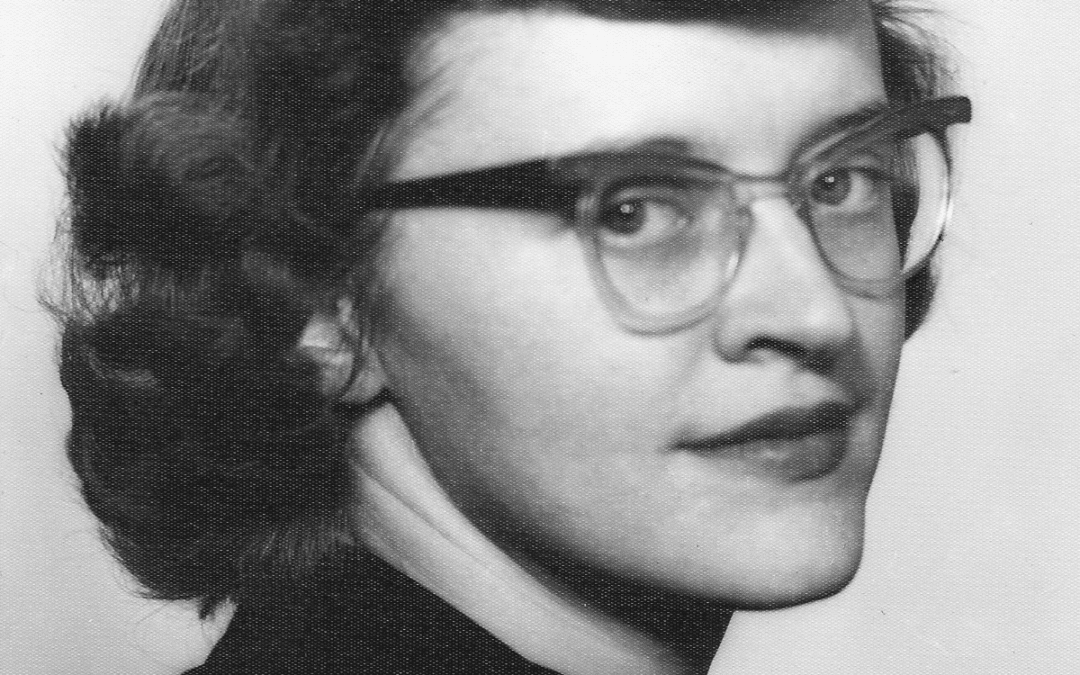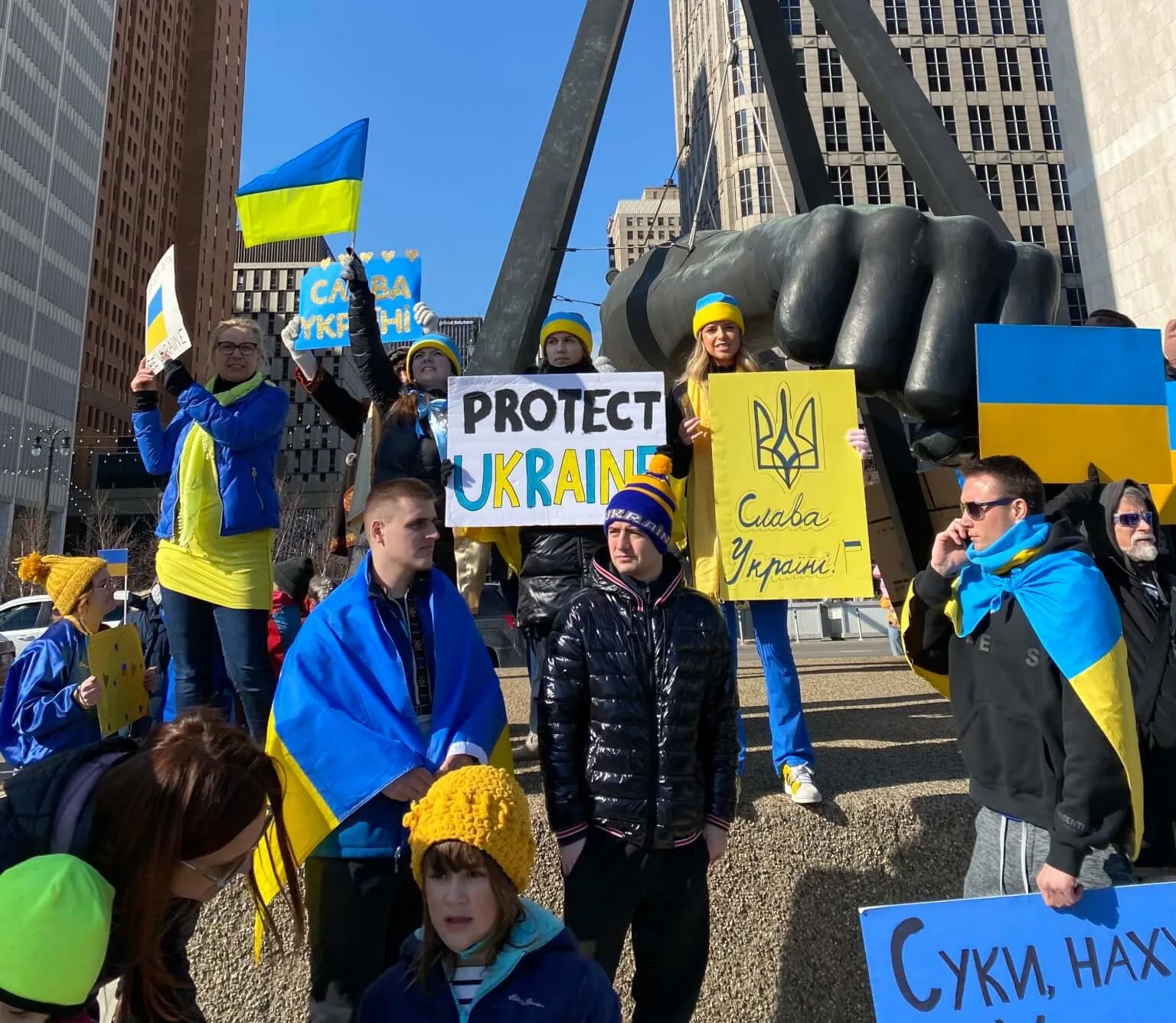
Protestors gather in front of the Joe Louis "Fist" statue in Detroit. Louis famously took down Max Schmeling, striking a blow to the idea of Aryan supremacy.
Many Michigan neighbors woke up to war waged on their family. Now, they’re fighting back from afar.
Need to Know
- Lots of Michiganders have taken off work to raise awareness and support for Ukraine after Russia’s invasion.
- About 50,000 people in Michigan are Ukrainian-American, and many still have family back in Ukraine.
- Their efforts have extended to Lansing and Washington, DC, where their support is changing how politicians are approaching the crisis.
DEARBORN, Mich.—Irene Luba-Kinasz Watts contemplated going to fight. Just for a second.
Watts is a mom of two. Her whole family is here in Dearborn. She has a good job. She serves on multiple elected boards. She doesn’t even have a passport, and even if she did, flights aren’t heading into Ukraine.
But the instinct came nonetheless.
Growing up in a Ukrainian household in Michigan—where she spoke Ukrainian, went to a Ukrainian church, and ate Ukrainian food—her first-generation immigrant parents raised her with values taught to anyone with her lineage: Protect your home and your people. A week ago, those reactions kicked in, for her and tens of thousands of Michigan households whose families far away woke up to war.
“You grow up hearing about what your parents went through, so it’s embedded in your DNA. It’s woven in,” Watts said. “It makes you who you are. … When push comes to shove, you’re going to see people without a doubt stand up and fight.”
For millions of people in Ukraine, the question of fight or flight is no longer hypothetical. On Feb. 24, Russia launched a full-scale invasion into their country and nonstop conflict has ransacked Ukraine ever since.
More than a million people have fled the country in the last week, and more are trying to get to safety every day. Many others have chosen to take up arms and fight, as the government has made guns available to all who want them and instructed residents how to fashion Molotov cocktails on radio broadcasts.
In Michigan’s robust Ukrainian community, which numbers close to 50,000, these stories aren’t delivered by cable news—they come via the Telegram app or Facebook messenger. Parents, siblings, and cousins using what they can to send updates from Ukraine.
Without warning, those bright screens go dark with the loss of cellular signal. Messages remain unread for hours, and worried family members can’t help but fear the worst.
Michigan’s Ukrainian Americans have begun launching their own efforts to support their people, mailing aid to Ukraine, correcting disinformation, and spurring government action.

Watts’ cousins in Ukraine left their homes to fight, she said. Last she heard on Monday, they had run out of ammunition. Ever since, that’s been her mission: supply chain coordinator, calling representatives and asking for updates on US deliveries of ammunition and bulletproof vests.
On Monday alone, she took the day off work and spent five hours making calls. She’s been in contact with Rep. Andy Levin, who is a member of the House Ukraine caucus and has been holding town halls, but she hasn’t heard back from other leaders who might help.
If they won’t call back, she’ll figure it out herself.
“Do I go get bulletproof vests and purchase them from Harry’s Army Surplus down the street?” Watts said. “I have a friend or neighbor that used to work for a shipping company. Can we get shipping?”
CONTEXT: ‘A Sad Night for Democracy’: What Michiganders Need to Know About Russia’s Attack on Ukraine
Hope and Helplessness
The western edge of Ukraine, close to its border with Poland, Slovakia, Hungary and Romania, is mountainous. With its tough terrain and geographic proximity to NATO countries—and relative isolation from Kyiv and Kharviv, cities that Russia has homed in on—many Ukrainians believe the region is as safe as a place can get right now.
That’s where Nick Deychakiwsky’s sister-in-law is. She’s hiding out with her 15-year-old daughter after the pair left Kyiv in the early hours of the second day of conflict. But Deychakiwsky’s brother-in-law stayed behind.
“He’s back where fighting is going on,” Deychakiwsky said.

Deychakiwsky, who works in Flint, described his brother-in-law as fiercely protective. He’s always been that way, Deychakiwsky said, noting that it led to some comical differences and disputes about parenting in the past. All those seem trivial now. When the war started, Deychakiwsky said, there was no doubt that his brother-in-law would join the resistance movement against Russian imperialists. Plus, his elderly mother is still in Kyiv, and she can’t leave. He won’t forsake her or his home.
“He felt that [his] family needs to be protected, and he’s like that about his place and his land and his country,” Deychakiwsky said.
It’s a common story among many Ukrainian relatives of Michiganders. Civilian men have remained in battlegrounds to protect their homes or assist the army, while their families evacuated to safer parts of the country and across borders. Women have stayed to fight, too, standing with the more than 15% of the Ukrainian armed forces who are women.
President Volodomyr Zelenskyy and local political leaders have also joined the ranks of the military in defense.
“Can you imagine if England were to say, ‘We have to go and try to conquer Ireland again, because those people who speak English are really English?’” Deychakiwsky said.
Experts predicted that the central government in Kyiv could fall in days. A week later, Ukraine shows no sign of bowing.
The unbreakable spirit and pride that Americans have quickly come to recognize in Ukrainians has been forged through generations of adversity. According to the Ukrainian-American Crisis Response Committee of Michigan, Russia has invaded Ukraine roughly every century for the last millennium.
“It developed over centuries, a strong tie to peoples’ land in their heritage, which is kind of weird because there are so many Ukrainians outside of Ukraine,” Deychakiwsky said.

But while Ukrainian Americans in Michigan have been heartened by what they’ve seen, it’s reminded them of the distance between themselves and family. There’s only so much they can do, and there’s a long war left. They’re trying everything.
As a senior program manager of the Mott Foundation in Flint, Deychakiwsky is trying to coordinate how he could connect the foundation’s mission with support for Ukraine. He’s talking it over with his bosses.
At Irene Watts’ workplace, she’s been allowed—encouraged, even—to take time off. Her colleagues understand; some have been through similar circumstances, when their countries faced violent turmoil and upheaval, often at the hands of the Soviet Union or the United States and western allies.
Many in Dearborn, which has the nation’s largest Arab-American community, empathize.
“I had another board member that said that by me sharing my story, it triggered some trauma from when he was a little boy in Lebanon 30 years ago and the bombing that happened across the street from him,” Watts, a Dearborn School Board member, said.
Now those colleagues are helping Watts get through. One reminded her that she could take a break from the depressing stream of news. She needed to hear that advice—”That day was a rough day,” Watts said.
RESOURCE: 4 Questions You Should Ask Your Kids in 2022 to Understand Their Mental Health
Deeply Embedded Roots
An imposing brick structure with Cyrillic lettering, the Ukrainian Cultural Center has stood in Warren since 1978.
The gathering place and event hall has stellar reviews for hosting conferences, weddings, and banquets that celebrate the local community. But recently, weddings at the center have given way to prayer vigils.
Local Ukrainian Catholic or Orthodox churches are where many of those who gather for the vigils met. When Ukrainians first began moving to Michigan in large numbers as part of the World War II diaspora, churches bought up land to host community events and fairs. It gave the new neighbors a chance to feel at home, for them to sing, dance, and play the bandura—a wooden Ukrainian folk instrument with a body like a guitar but a wide, vertical base more similar to a harp.

The strings of the bandura tie Deychakiwsky, who plays the instrument in a band, to his community in more ways than one. Leading up to the invasion, as conflict seemed increasingly likely, his bandmate—Mykola Murskyj—approached him.
“[Mykola] said, ‘We’ve got to do something,’” Deychakiwsky said. “And of course I said yes.”
The two became part of a community movement to rally resources and support to send to Ukraine, and to inform people locally about the context, history, and significance of the conflict. They called themselves the Ukrainian-American Crisis Response Committee of Michigan.
Calls for Peace on a Sunny Sunday
On Sunday, thousands of Ukrainian Americans and hundreds more supporters converged on Detroit’s Hart Plaza, coalescing in a blue- and yellow-clad mass. Speaking from a stage in front of the crowd, Tania Smyk, an organizer for the Ukrainian-American Crisis Response Committee of Michigan, was largely drowned out by a chorus of deep, sonorous horns, as truckers—many of whom are Ukrainian—looped around Jefferson Avenue.
Holding a speakerphone, Smyk invited community members up to share stories and encouragement for the rally.
Some who took the stage spoke entirely in Ukrainian. Many in the crowd nodded in agreement while others looked around, respectfully present but not understanding the words.
Before long, the Ukrainian national anthem swept through the winter air, as Smyk and two others modestly harmonized the first few lines. Soon, hundreds of voices joined in.
“Ukraine is not yet dead, nor its glory and freedom. Luck will still smile on us, brother-Ukrainians,” the crowd sung in Ukrainian, with older members—chests proudly puffed out and chins raised—bellowing their anthem in full voice.

More than 1,000 people filled the streets around the plaza, known for its Joe Louis “The Fist” monument. Homemade posters echoed the battle cries of Ukrainians at home, like Pres. Zelenskyy’s “I need ammunition, not a ride” response to suggestions that he should evacuate for safety. Some attendees waved flags from countries around the world.
A family from Georgia, which endured a similar invasion in 2008, passed out copies of the New Testament. Signs held high above the crowd expressed Taiwanese support for Ukraine. One woman carried a sign written with red letters: “Russia stands with Ukraine.” The crowd welcomed her in.
Heading into the event, local Ukrainians knew how vibrant and tight-knit their community was: They ate together, prayed together, and sang together. But few expected such solidarity from others in the region.
“I’m surprised by the sheer number, but I know that we have support from these people,” Smyk said.
Irene Watts made it downtown Sunday with her mother. It was the first protest her mother had ever attended.
Having graduated from the University of Michigan and taken quite a few foreign policy classes, Watts came of age with few reservations about protesting and making her voice heard. When she’d head out to a rally, her mom—a first generation immigrant to the United States—would chide her for making a fuss, saying, “Luba, why are you going?”

On Sunday, the two found common ground.
“She was chanting, my mother,” Watts said, chuckling. “Yes, we’re not back home, but together we’re a force to be reckoned with.”
Rallies similar to the one in Detroit have swept the world. And Ukrainians, along with supporters, have flexed their might.
“I’m trying to summon people, summon help, calling my congressmen and representatives, and trying to support them any way I can,” said event attendee Vitaliy Grytsyuk, as oncoming truckers and traffic honked for the sign he held, reading “Ukraine fights for all free nations! Stop Russia.”

Stepping Up
On Tuesday, the Michigan Senate unanimously adopted a resolution rebuking Russian actions and vowing to support the Ukrainian community in Michigan. The Ukrainian-American Crisis Response Committee of Michigan helped draft the resolution, which was introduced by state senators Paul Wojno (D-Warren) and Stephanie Chang (D-Detroit).
Sen. Chang said her parents immigrated from Taiwan and are fiercely passionate about its independence. She worked to connect local leaders from the Taiwanese-American community with members of the Ukrainian-American committee.
“I think it’s important we step up and show our support publicly,” Chang said.
On Wednesday, Governor Gretchen Whitmer directed the state Treasury to divest pension plan investments from Russia.
More legislation could be on the table.
POLICY: Gov. Whitmer Calls on State Pension Funds to Divest Investments From Russia
“The federal government and our international allies and partners have announced significant sanctions targeting Russian financial institutions, state-owned enterprises, and other government-related activities,” Whitmer wrote. “Michigan supports these national and international sanctions and should align our state-level actions.”
After the state’s support and Sunday’s rally, Smyk said she felt encouraged—even if only temporarily.
“It’s really easy to feel hopeless because we’re over here. They’re over there,” Smyk said. “Demonstrating like this isn’t going to put an end to the war.”
For Watts, the colors, the singing, and the chanting on Sunday brought back memories of simpler times. She fondly remembers a Ukrainian-American festival from her childhood, which also took place in Hart Plaza. It was one of the largest Ukrainian-American celebrations in the country—and the last time her mother visited downtown Detroit.
Recently, her mother showed her a photo of the 1979 festivities.

Forty-three years later, as she and her mother marched from Hart Plaza to Campus Martius Park, Watts decided to pull out her phone to livestream the historic and emotional march on Facebook.
To her surprise, her cousins in Ukraine tuned in.
“Just by them joining on Facebook Live, I asked them to share it with their audience, with their friends, because there’s something about that,” Watts said.
It’s not bulletproof vests. It’s not ammunition. But it’s something.
“We’re not going to lose this,” said Smyk, as she, too, marched. She gestured to the flags and the crowd behind her. “We’re not going to lose the Ukrainian people.”
Politics

Trump says he’s pro-worker. His record says otherwise.
During his time on the campaign trail, Donald Trump has sought to refashion his record and image as being a pro-worker candidate—one that wants to...
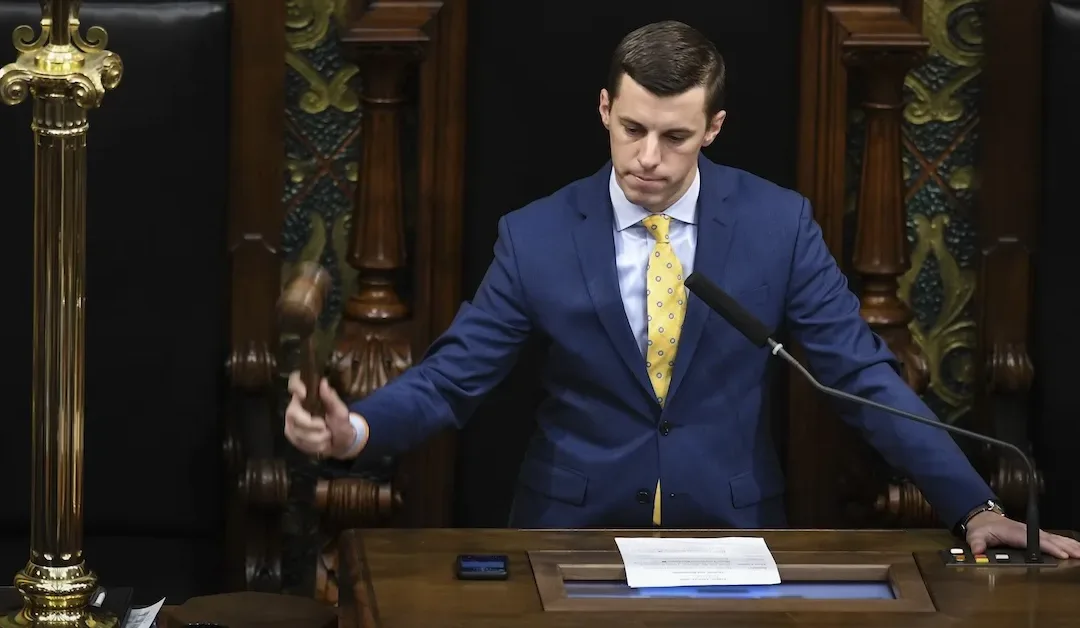
Former Michigan House leader and wife charged with financial crimes for misuse of political funds
LANSING—Prosecutors charged the former leader of the Michigan House and his wife with financial crimes Tuesday, alleging they milked political...

Thousands of workers rush to ‘make it in Michigan’ as clean energy jobs multiply
The Biden administration is investing billions of dollars in clean energy and creating thousands of new jobs. And in Michigan, workers are starting...
Local News
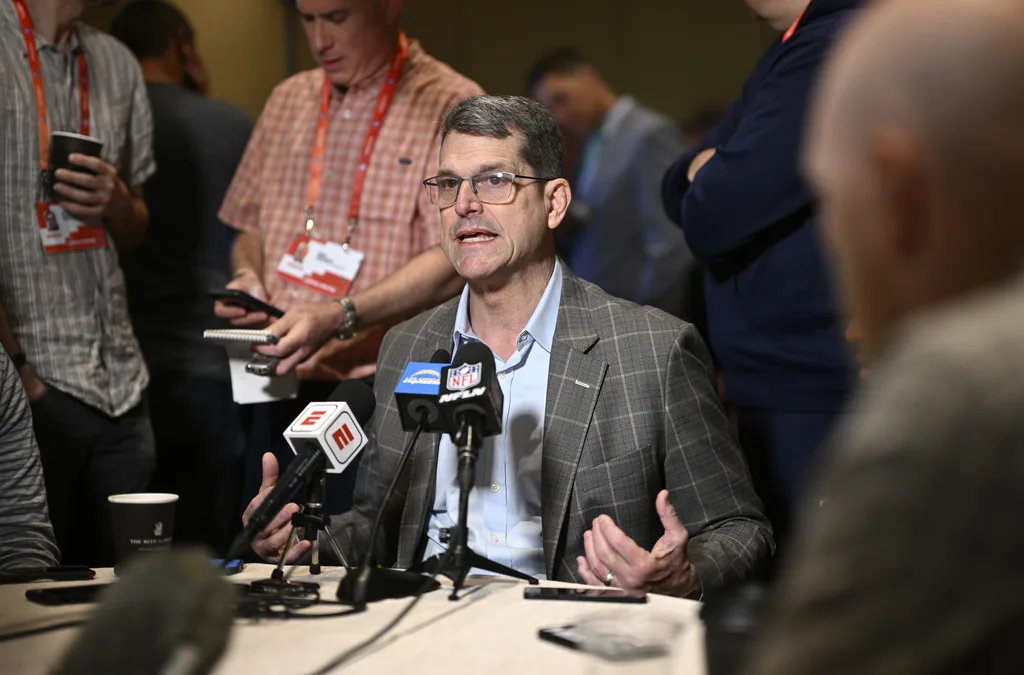
Michigan gets 3 years of probation for football recruiting violations; case vs. Jim Harbaugh pending
Michigan was given three years of probation, fined and hit with recruiting limits by the NCAA on Tuesday after football coaches and staff had...
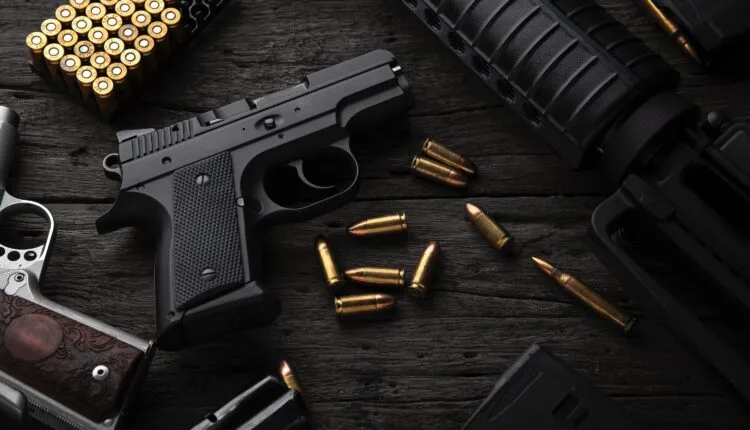
Why Michigan State Police are about to destroy 3,000 guns in Flint
FLINT—The city of Flint is reporting a downward trend in crime rates, attributable in part to efforts by the city to remove guns from circulation....





